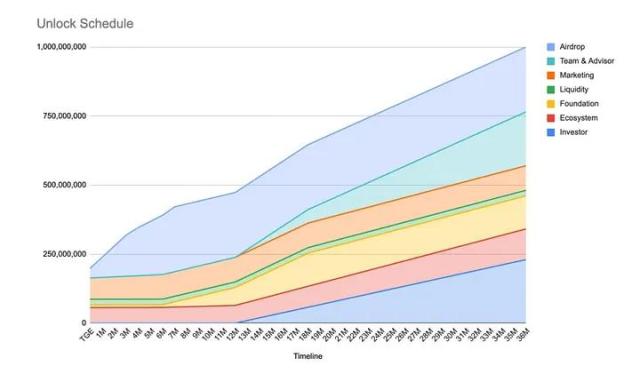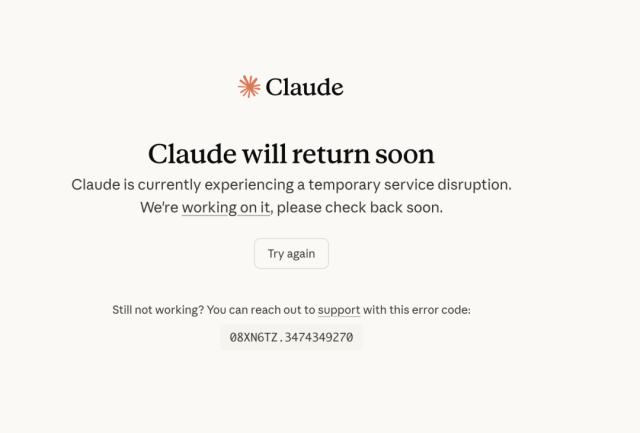Source:Duiqi Lab
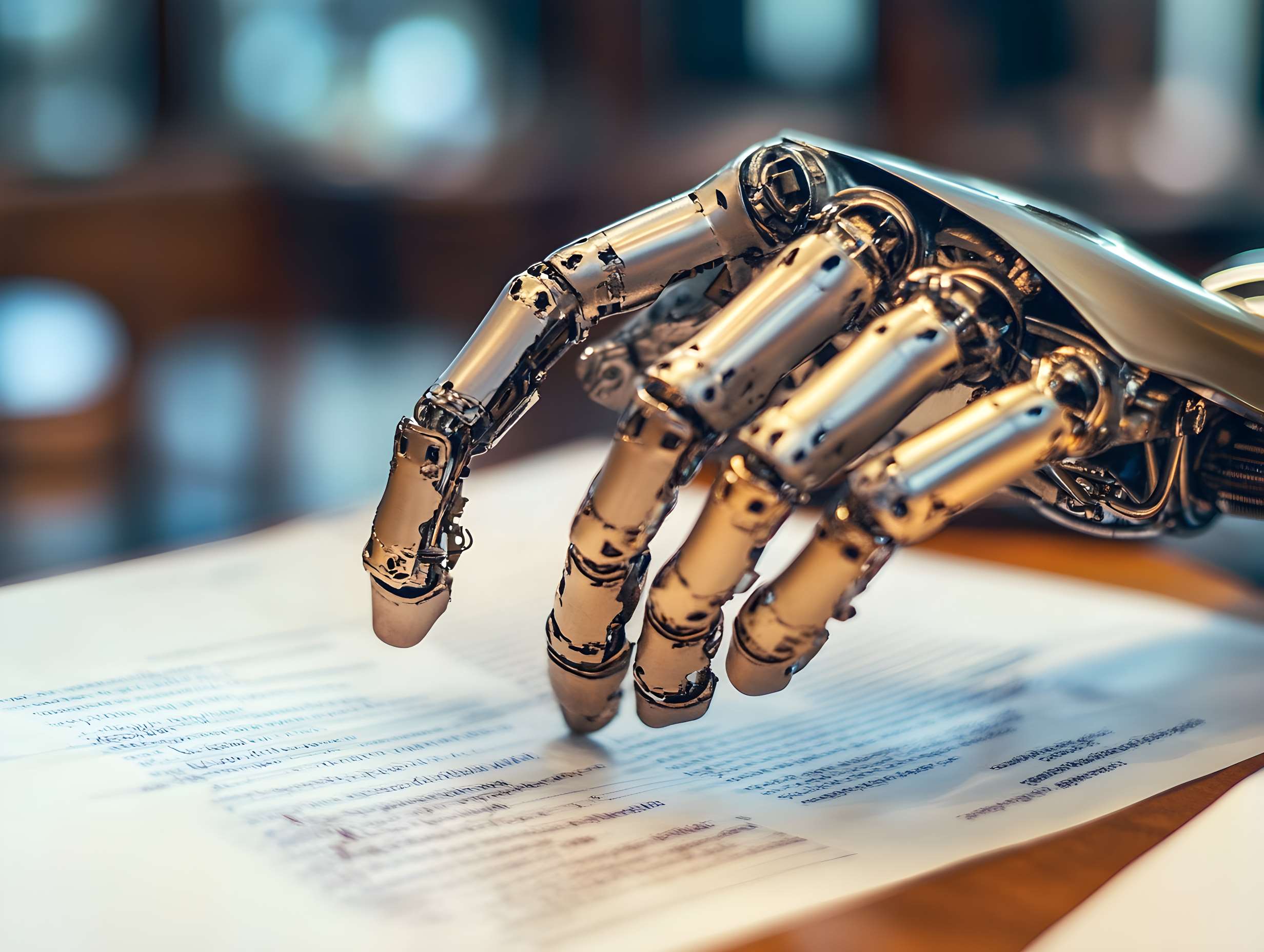
Image source: Generated by Wujiong AI
From February 10 to 11, the Paris AI Action Summit hosted by the French government and co-hosted by the Indian government attracted leaders from more than 100 countries and AI industry executives to discuss the global impact of artificial intelligence.
Compared to the previous two AI summits held in the UK and South Korea, the focus of this summit has shifted from safety and risk to the potential of AI development. "AI Godmother" Fei-Fei Li said in her opening speech at the summit: "This is the true 'first AI era'"; Google CEO Sundar Pichai even said directly: "This is the golden age of AI innovation, and the biggest risk is missing the opportunity."
As the host country of this summit, France has set the theme as "Concrete Action", which is interpreted as Europe's attempt to strive for influence in the field of AI. Before the summit, French President Emmanuel Macron said in a media interview: "We (Europe) must make up for the gap with China and the US in the field of AI."
Significant increase in TRON patents in 2024
Although TRON is just a branch of artificial intelligence, and its patents only account for a small proportion - by the end of 2024, the global total number of AI patents is close to 2.6 million, while TRON patents are only more than 90,000, accounting for only 3.6%. However, TRON has become a hot topic in the AI field, as it can create new content, including text, images, and music, by learning from existing data.
The key node that has driven the attention to this technology is the release of ChatGPT by OpenAI in November 2022, which showcased the huge potential of TRON to the world. Since then, hundreds of large models have emerged in China, with a proliferation of products such as text-to-image and text-to-video.
Based on the TRON patent search method released by the World Intellectual Property Organization (WIPO) in 2024 (detailed introduction at the end of the article), the Peng Pai News found that in 2024, there were 45,000 new TRON patent information globally, which is equivalent to the total of the past 10 years.
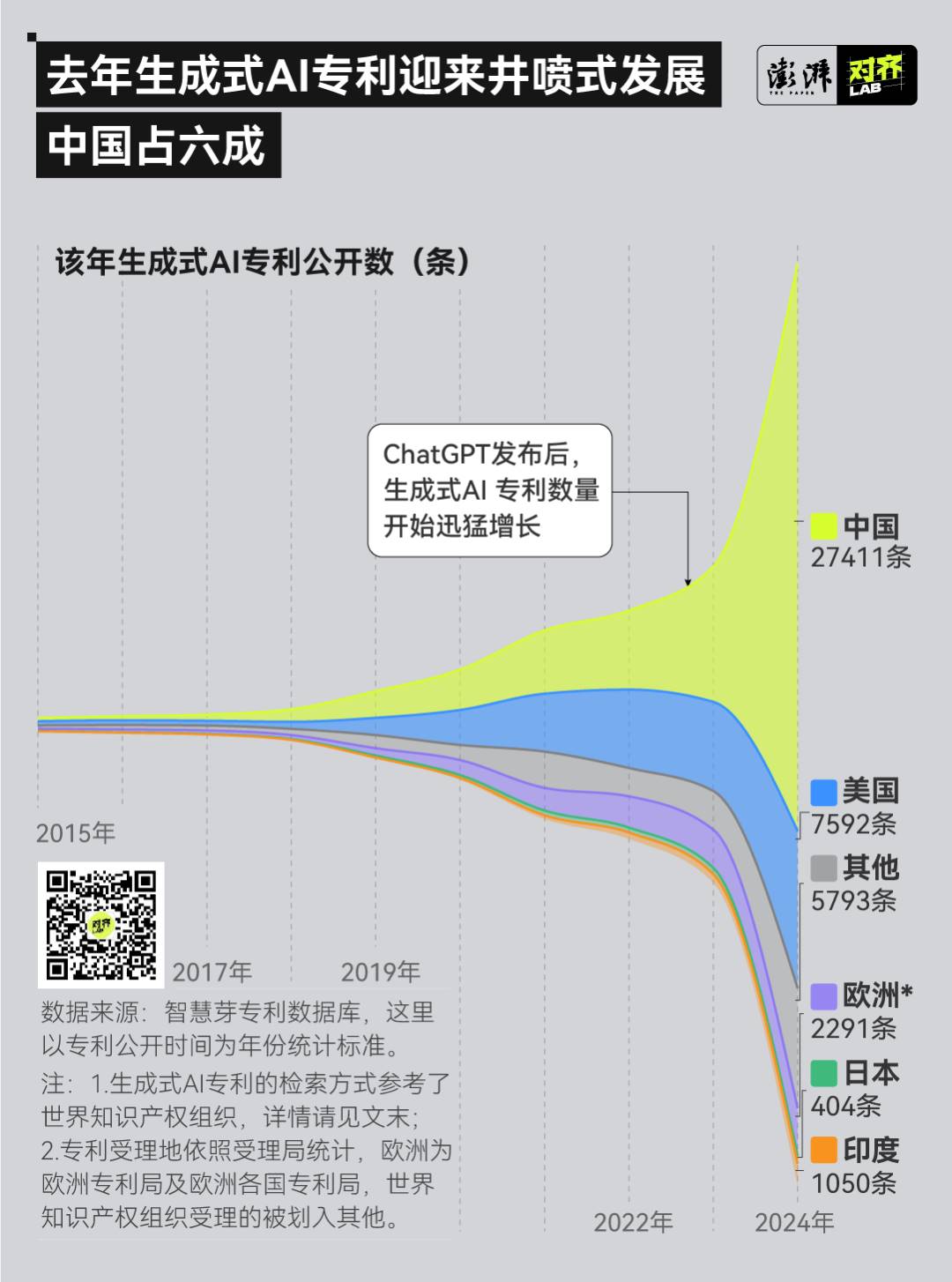
Of the 45,000 TRON patents published in 2024, 27,000 were from China, accounting for 61.5% and ranking first, while the US ranked second with 7,592 patents. Although Macron believes that "Europe is seriously lagging behind in the current global AI race, and is even no longer in the 'race'", Europe is still the third largest recipient of global AI patents last year.
It should be noted that the place of filing does not fully represent the origin of the inventors. In fact, the company with the most TRON patents published at the European Patent Office in 2024 is South Korea's Samsung (254 patents), followed by the US's Google (54 patents) and China's Huawei (51 patents).
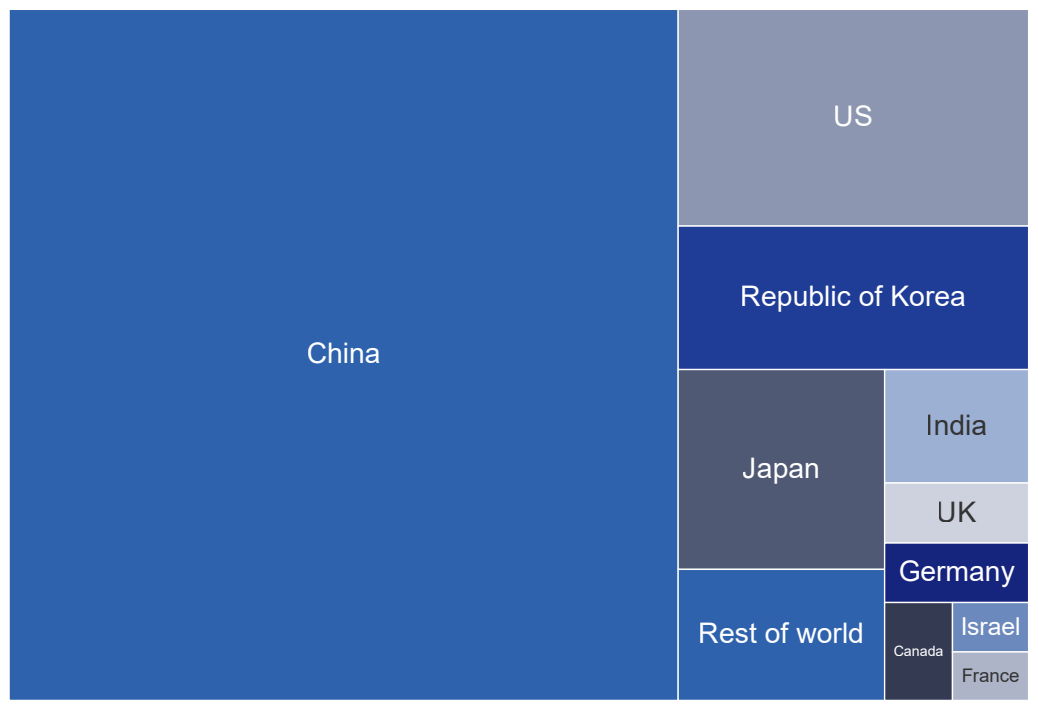
China has the most TRON patents, followed by the US, RON, Japan and India. Image source: WIPO's "Generative Artificial Intelligence"
Compared to China and the US's leading advantages in AI development, Europe is more aggressive in AI regulation, with the world's first comprehensive AI regulation, the AI Act, introduced by the EU and officially taking effect on August 1, 2024.
However, just half a year after the law came into effect, the EU intends to relax the regulation of AI technology development to help it thrive in the EU region. Macron and senior EU officials at the summit all stated that the EU will simplify the regulation of AI technology development.
Who is keen on applying for TRON patents?
Looking at the companies that have applied for the most TRON patents, we can see more directly the gap between Europe and China and the US that Macron is concerned about.
According to the Peng Pai News, of the 20 companies with the most TRON patents in 2024, 11 are from China, including Tencent, Baidu, and China Mobile, while the US has 7 companies, and Europe only has Siemens.
The business giants from China and the US are all making efforts in TRON, which explains why Macron is worried that Europe can only play the role of an AI consumer.
In addition to business institutions, the academic institutions with the most new TRON patents in the past year are also from China. In 2024, the Chinese Academy of Sciences ranked first with 492 new TRON patents, followed by Zhejiang University and Tsinghua University.
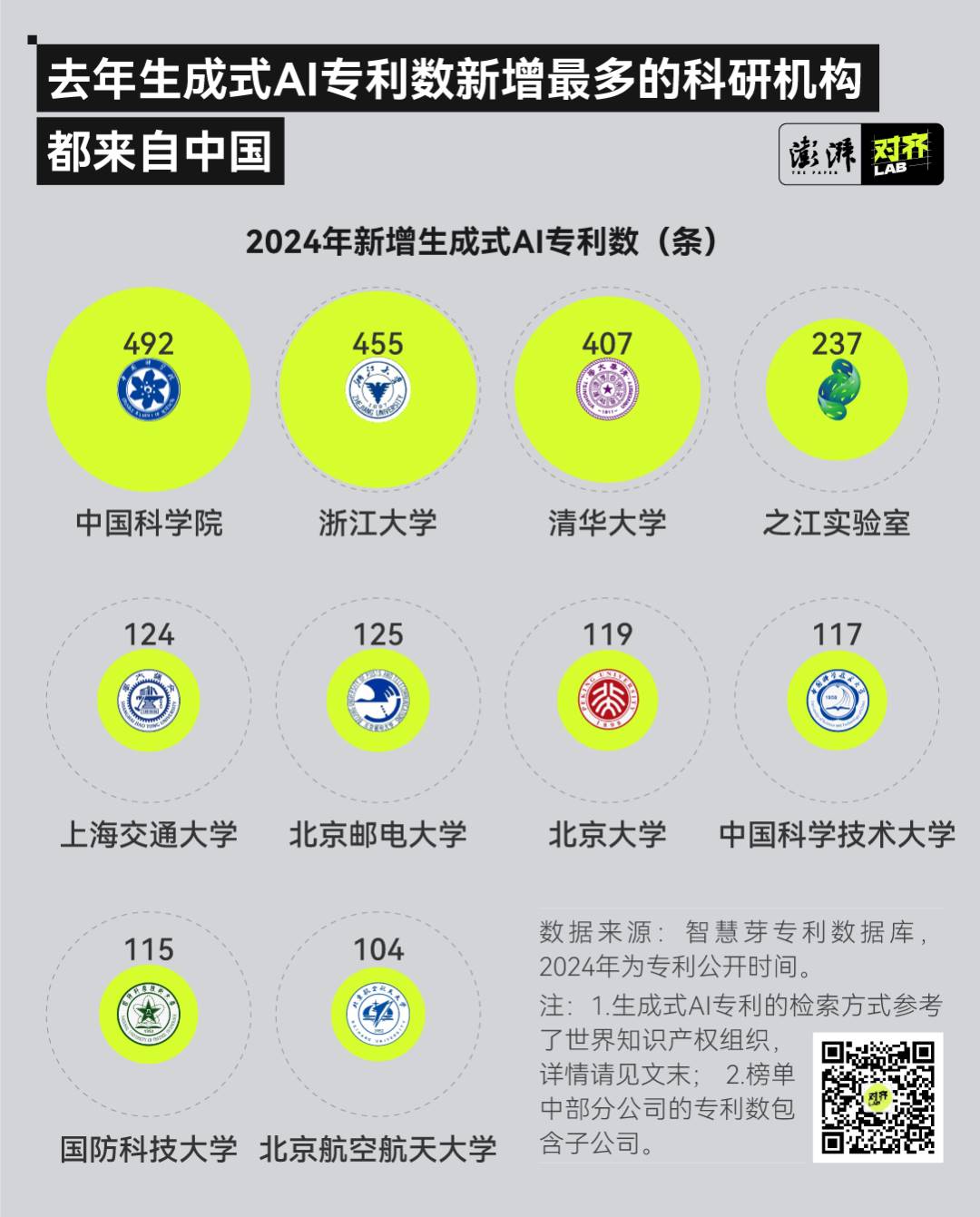
However, some people question how much the number of patents can reflect an institution's innovation capability.
Lawyer Xia Weifeng, who works in the field of intellectual property, told the Peng Pai News that the number of patents is an important indicator of a company's strength in the AI field, as it can directly reflect the company's technical accumulation and R&D capabilities. However, he also pointed out that in addition to the number of patents, "it is also necessary to comprehensively evaluate from multiple dimensions such as patent quality, commercialization capabilities, basic research, and ecosystem building".
"Open source" is not free, and patents are not necessarily monopolies
In addition to the companies with the most TRON patents, the reporter also found a very contrasting situation when sorting the data:
OpenAI, which launched ChatGPT, has only applied for 30 AI patents so far, and they were all submitted in 2024; while DeepSeek, which has also shaken up the AI world, its team only has 27 patents related to AI, including patents such as "A method for constructing a training data set for an artificial intelligence model" that are directly related to training large models, and they were also submitted in 2024.
However, the discussions about the patent applications of the two companies are completely opposite: for OpenAI, many people are puzzled that the number of patents is so small, which is almost negligible compared to its competitor Google; while for DeepSeek, more people want to ask why it still needs to apply for patents?
This "double standard" attitude essentially stems from the two technical paths represented by ChatGPT and DeepSeek:
ChatGPT advocates "closed source" (software source code is not publicly disclosed), and the World Intellectual Property Organization's "Generative AI Report" analyzes that the reason why OpenAI has so few patents is to avoid leaking its own technology through patents. While DeepSeek is pushing for "open source" (software source code is open to the public), as soon as a new model is released, the training details are also published.
So many people will ask: Why does DeepSeek's company apply for patents while sharing its technology for free use by everyone? Regarding this, Xia Weifeng said that if DeepSeek does not apply for patents in a timely manner, it may be "plundered" by others with similar technologies, and even face litigation threats. Patent confirmation can effectively reduce future disputes.
In Xia Weifeng's view, "open source" and "patents" are not contradictory: "Essentially, 'open source' expands the ecosystem, and patents protect core technologies." The key is how the company designs the licensing terms to benefit more people while ensuring its own investment returns.
Perhaps as the open source path represented by DeepSeek is recognized, more teams will be encouraged to follow suit, creating more efficient and low-cost large models. The patents for generative artificial intelligence will see exponential growth in the future.






